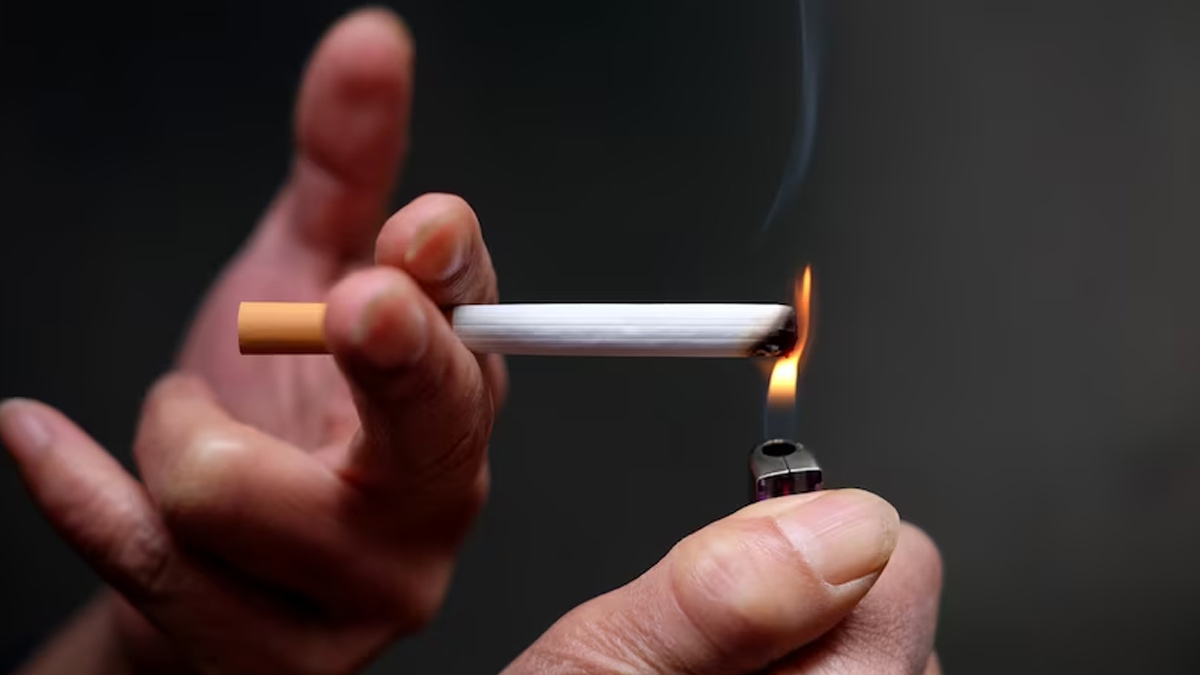
If you smoke daily, it is time to reconsider your choices. This is because smoking not only damages your lungs but can also lead to an increased risk of heart disease and hypertension. On this World Hypertension Day, we spoke to Dr Nikhil Parchure, Director of Cardiology, MBBS, MD, Member of the Royal Colleges of Physicians (UK), Fellow of the Royal College of Physicians (UK), Medicover Hospitals, Navi Mumbai, to learn more about the association between smoking and high blood pressure, and the risks involved.
Table of Content:-
What is Hypertension?
Hypertension, also known as high blood pressure, is a condition where the force of blood against the walls of arteries is consistently too high, which can lead to stroke, heart, and kidney disease. While many reasons, like poor diet, stress, obesity, or alcohol consumption, can put you at risk of developing hypertension, smoking can also contribute to it.
Here's how the two are associated.
How Smoking Leads to Hypertension
"Both active and passive smoking can lead to the buildup of fatty substances (plaque) inside the arteries that are (atherosclerosis), which is a process wherein the blood pressure becomes high," said Dr Parchure.

He further said that every time one smokes, it causes a temporary increase in blood pressure and even heart rate. Over time, high blood pressure tends to destroy the walls of the arteries and make you prone to various heart problems, like stroke and heart attack.
Also Read: Reasons Why People Develop High Blood Pressure. Know Prevention and Treatment of Hypertension
Symptoms of Hypertension
Dr Parchure said, "One who smokes often can experience the symptoms of hypertension, such as headaches, nose bleeds, irregular heartbeat, confusion, blurry vision, dizziness, and fasting heart rate. Thus, it is important for those who smoke to quit without any further delay."
Way Forward
Here's what you can do to reduce your risk of hypertension.
Quit Smoking at the Earliest

Quitting smoking can reduce your risk of developing hypertension and will also save you from lung and heart damage.
Adopt a Healthy Diet
Dr Parchure emphasised having a diet rich in fresh fruits, vegetables, whole grains, pulses, lentils, and legumes. These foods provide essential nutrients while being low in saturated fats and cholesterol. Additionally, you should avoid excessive salt intake, as it can contribute to high blood pressure.
Maintain a Healthy Weight
Excess weight can put additional strain on your cardiovascular system, exacerbating the risk of high blood pressure. "Thus, try to maintain an optimum weight and exercise daily without fail," said Dr Parchure.
Also Read: How Can Hypertension Affect Other Organs? Expert Explains
Limit Alcohol Consumption

Our expert also recommended cutting down on alcohol as it can also increase your risk of high blood pressure.
Manage Stress
Chronic stress can contribute to high blood pressure, so it's important to prioritise your mental well-being. "You should find healthy ways to cope with stress, such as practising yoga, meditation, or engaging in hobbies you enjoy," said Dr Parchure.
Follow Your Doctor's Advice
If you have been diagnosed with hypertension, it is crucial to follow your doctor's prescribed treatment plan. Take medication as directed and attend regular check-ups to monitor your blood pressure.
Bottomline
By implementing these lifestyle changes, you can effectively manage hypertension and promote a healthy heart. Remember, quitting smoking is the first and most critical step in reducing your risk of high blood pressure. Take control of your health today, and embrace a smoke-free life for a brighter and healthier future.
Image Credits: freepik
Also watch this video
Read Next
Parita Dholakia’s Life Experience of Living with Osteogenesis Imperfecta aka Brittle Bone Disease
How we keep this article up to date:
We work with experts and keep a close eye on the latest in health and wellness. Whenever there is a new research or helpful information, we update our articles with accurate and useful advice.
Current Version